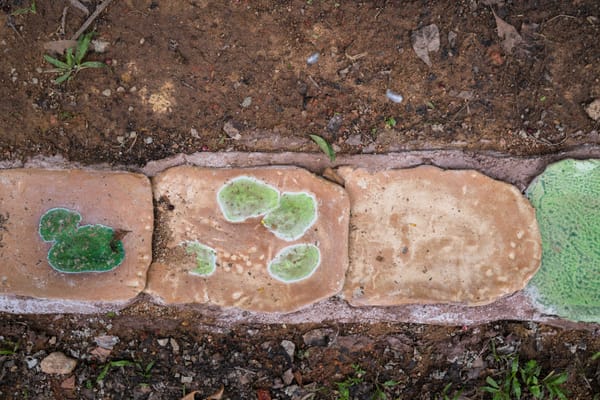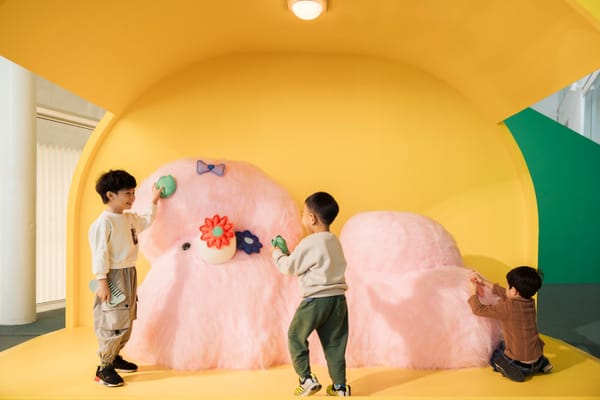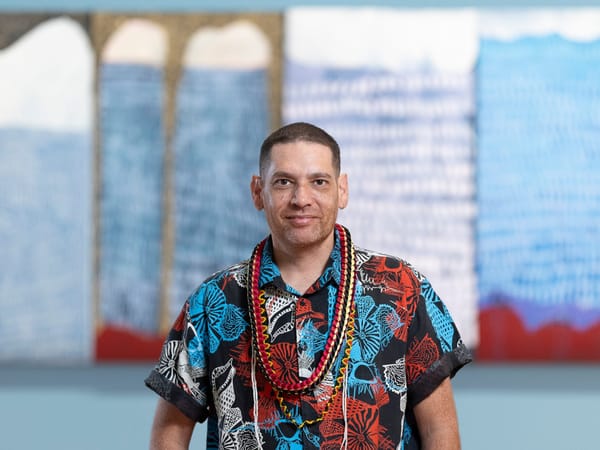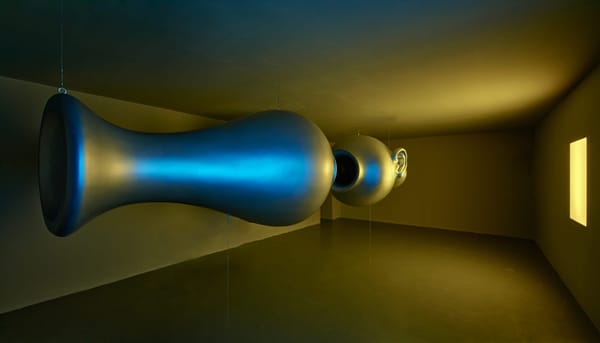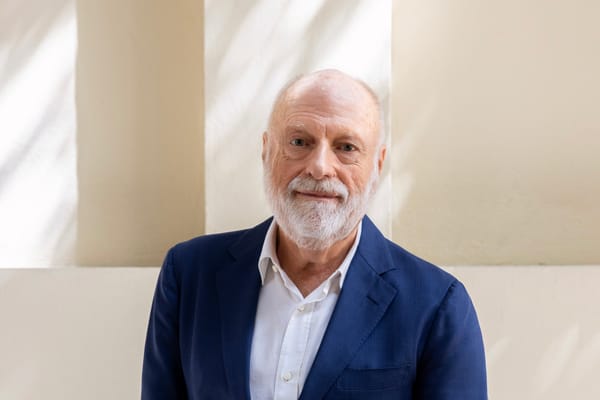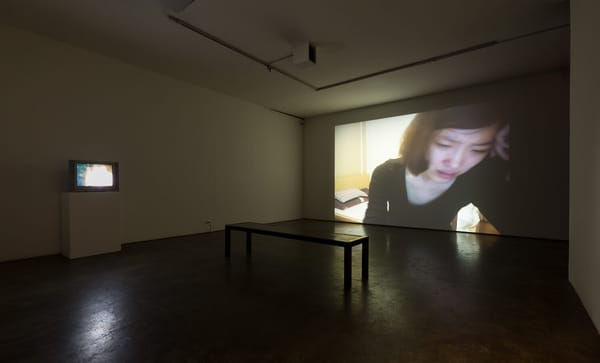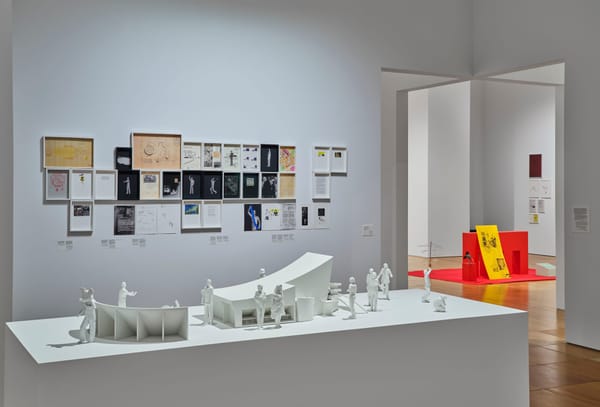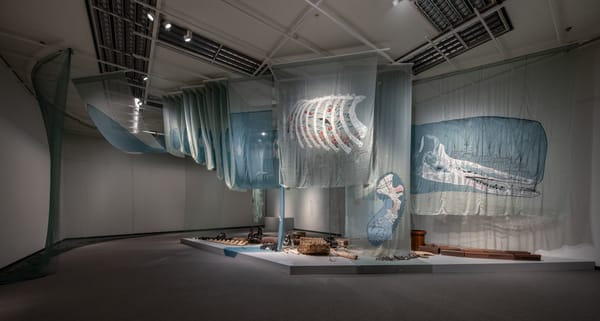Shows
“The Propeller Group”
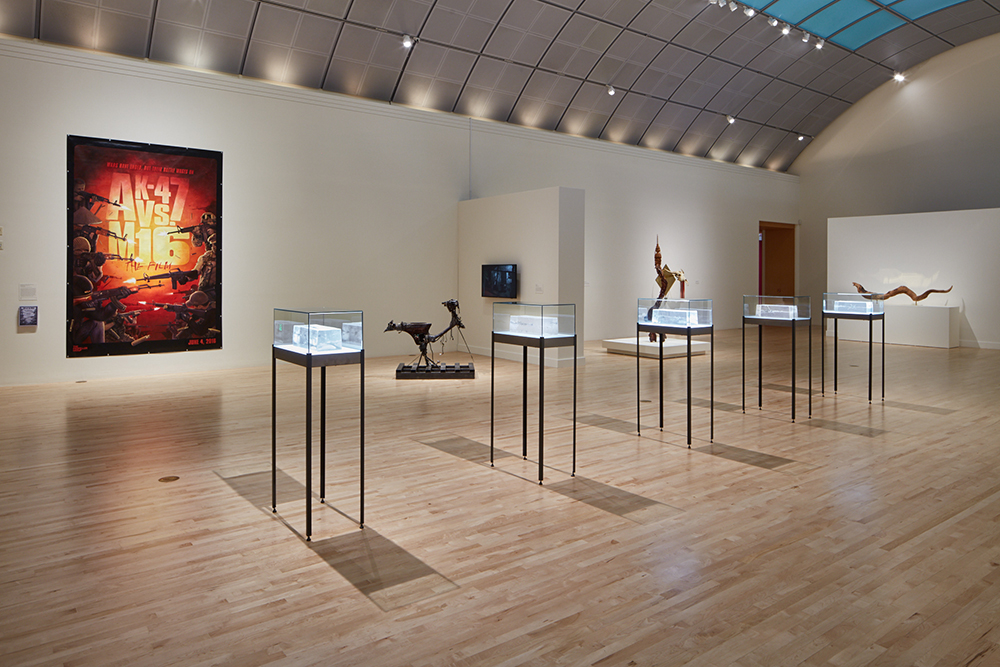

“Your ideas about authenticity are too simplistic,” a FedEx agent says to Tung, a collaborator of Ho Chi Minh- and Los Angeles-based The Propeller Group, in the short film Fade In: Ext. Storage – Cu Chi – Day (2010). The video is based on a conversation that took place in 2010, after a shipment of fake guns belonging to the Vietnamese collective were seized. Initially, we hear a banal exchange of tracking numbers and misunderstandings, as we watch workmen unpack antique, wooden housing beams and load them onto a van. As Tung explains that the guns are not real, but props made for a television series, the conversation evolves into philosophical discourse covering themes of cultural identity and authenticity. The agent makes an unexpected declaration that encapsulates the complex narrative built around globalization, commerce and the movement of goods under capitalism: “The staging of history is happening around us all the time. We basically live in a staged version of the past.” Within six minutes, the conversation jumps from a confiscated package, to colonial trade, to the present-day and finally back to Tung’s shipment, employing a mundane event to emphasize how history shapes the invisible networks of commerce, identity and ideology—a discernable thread throughout the presentation.
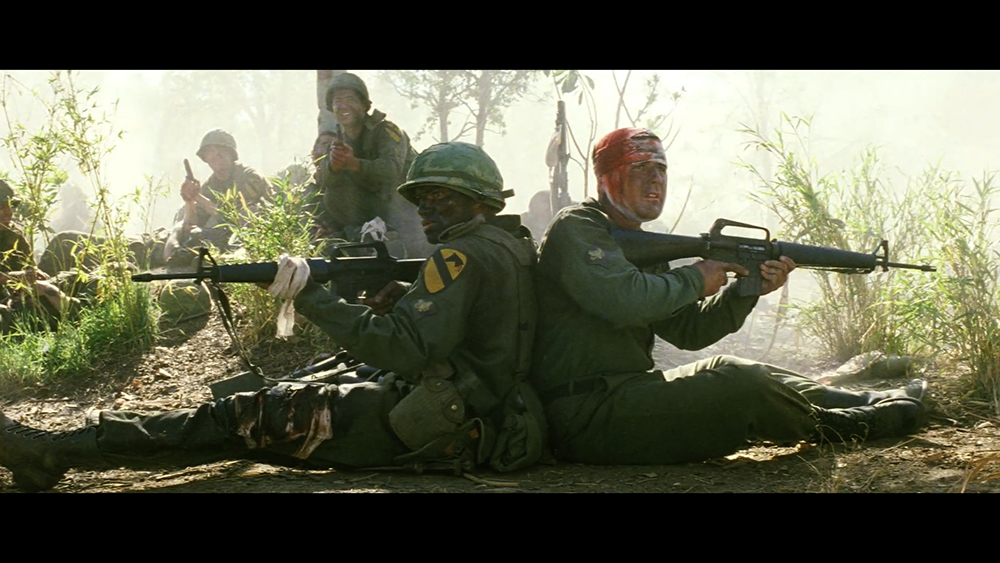
Formed by Phunam, Matt Lucero, and Tuan Andrew Nguyen in 2006, The Propeller Group layers commentary upon social, economic, spiritual and religious structures using banal and pop culture imagery. The San Jose Museum of Art’s exhibition of the collective—the first survey of their work, mounted at the Museum of Contemporary Art Chicago, Phoenix Art Museum and the Blaffer Art Museum at the University of Houston before traveling to California—was rife with those expressions. Adjacent to the screen showing Fade In was Hue House, described as an 18th-century house frame carved from jackfruit wood, offering context for the objects loaded onto the truck in the video: As this piece travels from one country to another for exhibitions, snags at customs arise, while its movement across borders alludes to the trade of fake antiques from Vietnam.
Unlike Hue House, images of entertainment move across the globe with no hindrance. The painted movie poster for AK-47 vs. M16, The Film (2016) is reminiscent of promotional materials for Hollywood-produced Vietnam war movies. It was accompanied by ballistics gel blocks that show the impact of bullets fired from a Soviet-made Kalashnikov and an American-made M16, two firearms that were the primary assault rifles used in the Vietnam War. Here, the artists caricaturize America’s stereotype of Vietnam—a land consistently reduced to war, violence, trauma and death in popular media.
East and West intersect instead of clash in The Living Need Light, the Dead Need Music (2014), produced for the third edition of the Prospect New Orleans triennial in 2014. In the 21-minute-long video, we follow Sam, the transgender protagonist, as well as a host of characters—a fire breather, a snake charmer, funeral criers, a brass band and more—as real-life funeral processions and reenactments play out on screen. The score shifts from Vietnamese music, to a brass band procession covering the 2008 song Trouble is a Friend by Australian singer Lenka, and finally a Louisiana-style jazz number—mirroring the multiplicity of cultures depicted in the funeral procession. All of this points to how The Propeller Group occupies a transitory space where timeworn binary constructs no longer exist.
The group applies their wry sense of humor in Television Commercial for Communism (2011), in which they conceived a sleek advertisement to rebrand communism for the five countries that still (nominally) adopt it as their system of government, underlining the parallels between propaganda and advertising. Moving back towards street level to tackle the weighty notion of maintaining a livelihood, The Dream (2012) shows the gradual dismemberment of a Honda Dream motorbike—a symbol of financial independence in Vietnam—as components are ripped away by thieves one by one when the vehicle is left unattended on the street at night. Perforating the dichotomy between capitalism and communism, crime and order, and ultimately life and death, The Propeller Group launders the politics, culture, and history of Vietnam to reveal the ideologies that underpin our world’s modes of organization.
The Propeller Group’s survey exhibition at the San Jose Museum of Art is on view until March 25, 2018.
